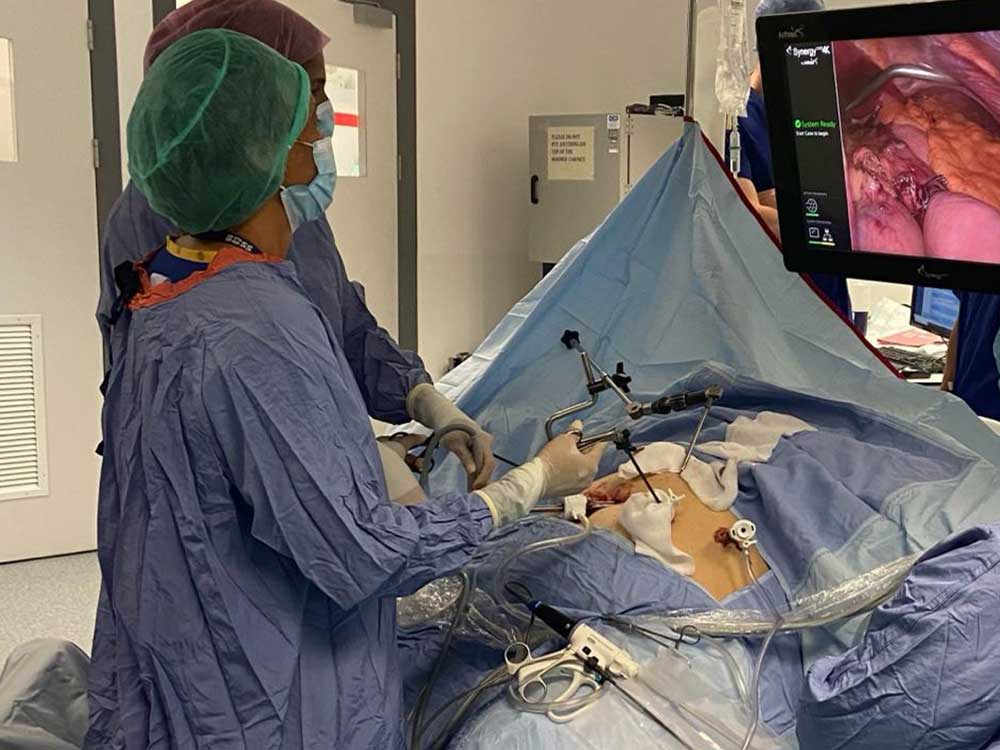Gastric balloon
Laparoscopic Anti-Reflux Surgery
Gastro-oesophageal reflux disease (GORD) is a general term which describes the range of situations – acid reflux, with or without oesophagitis and symptoms.
- Acid reflux is when some acid leaks up (refluxes) into the oesophagus.
- Oesophagitis means inflammation of the lining of the oesophagus. Most cases of oesophagitis are due to reflux of stomach acid which irritates the inside lining of the oesophagus. The lining of the oesophagus can cope with a certain amount of acid. However, it is more sensitive to acid in some people. Therefore, some people develop symptoms with only a small amount of reflux. However, some people have a lot of reflux without developing oesophagitis or symptoms.
The sphincter at the bottom of the oesophagus normally prevents acid reflux. Problems occur if the sphincter does not work very well. This is common, but in most cases it is not known why it does not work so well. In some cases the pressure in the stomach rises higher than the sphincter can withstand. For example, during pregnancy, after a large meal, or when bending forward. If you have a hiatus hernia (when part of the stomach protrudes into the chest through the diaphragm), you have an increased chance of developing reflux.
Surgery
An operation can ’tighten’ the lower oesophagus to prevent acid leaking up from the stomach. It can be done by ’keyhole’ surgery.
In general, the success of surgery is no better than acid-suppressing medication. However, surgery may be an option for some people whose quality of life remains significantly affected by their condition and where drug treatment is not working well or not wanted long-term.
Laparoscopic Anti-Reflux Surgery
Gastro-oesophageal reflux disease (GORD) is a general term which describes the range of situations – acid reflux, with or without oesophagitis and symptoms.
- Acid reflux is when some acid leaks up (refluxes) into the oesophagus.
- Oesophagitis means inflammation of the lining of the oesophagus. Most cases of oesophagitis are due to reflux of stomach acid which irritates the inside lining of the oesophagus. The lining of the oesophagus can cope with a certain amount of acid. However, it is more sensitive to acid in some people. Therefore, some people develop symptoms with only a small amount of reflux. However, some people have a lot of reflux without developing oesophagitis or symptoms.
The sphincter at the bottom of the oesophagus normally prevents acid reflux. Problems occur if the sphincter does not work very well. This is common, but in most cases it is not known why it does not work so well. In some cases the pressure in the stomach rises higher than the sphincter can withstand. For example, during pregnancy, after a large meal, or when bending forward. If you have a hiatus hernia (when part of the stomach protrudes into the chest through the diaphragm), you have an increased chance of developing reflux.
Surgery
An operation can ’tighten’ the lower oesophagus to prevent acid leaking up from the stomach. It can be done by ’keyhole’ surgery.
In general, the success of surgery is no better than acid-suppressing medication. However, surgery may be an option for some people whose quality of life remains significantly affected by their condition and where drug treatment is not working well or not wanted long-term.

